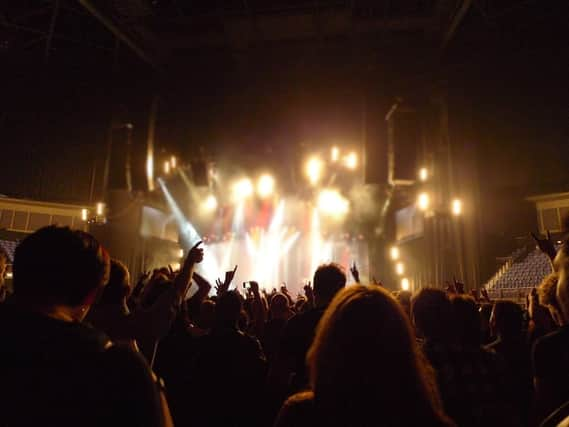Threats to future of music venues revealed in first live music census


Hundreds of Britain's music venues are facing the threat of closure amid rocketing business rates and tightening noise restrictions, warns new research.
A third of venues surveyed as part of the UK's first live music census reported struggling with increased costs.
Advertisement
Hide AdAdvertisement
Hide AdAnd many had experienced problems with property development around the venue, which can cause noise complaints from people living nearby.
The study, conducted by researchers from the Universities of Edinburgh, Newcastle and Turku in Finland carried out the live music census in March 2017.
They conducted studies in Brighton, Glasgow, Leeds, Liverpool, Newcastle-Gateshead, Oxford, and Southampton.
Findings show that money spent on live music events contributes hugely to local economies - £78.8 million annually in Glasgow, £43.3m in Newcastle-Gateshead and £10.5m in Oxford.
Advertisement
Hide AdAdvertisement
Hide AdNearly half of the 4,400 people surveyed spent more than £20 on tickets for concerts or festivals each month, but just a quarter spent the same on recorded music.
The findings showed that many people attend events in smaller spaces, which are most at threat.
More than three-quarters had visited venues with a capacity of up to 350 people during the past 12 months, and 74 per cent had visited pubs and bars for live music.
The researchers say mapping current trends will help inform debates about the future of the live music industry, such as the recently announced Digital, Culture, Media and Sport Committee Inquiry into live music.
Advertisement
Hide AdAdvertisement
Hide AdDr Matt Brennan, from the University of Edinburgh's Reid School of Music, said: "Festival and concert attendance continue to grow.
"This report not only shows the cultural and economic value of live music but also the challenges it faces.
"This survey is the largest of its kind in the UK.
"We hope it can influence the valuable contribution live music makes to wider society and help support the protection of the live music ecology."
The project was funded by the Arts and Humanities Research Council, and industry partners are the Musicians' Union, Music Venue Trust and UK Music.